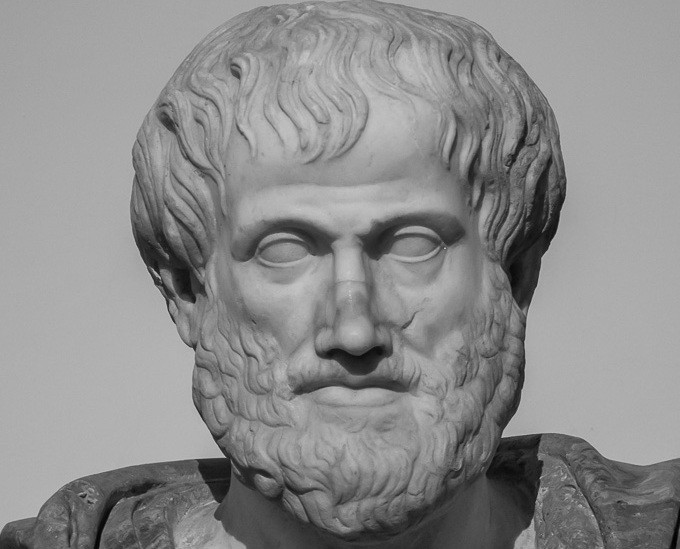As a philosophical concept and cultural ideal, wisdom has enjoyed a long history. It has also acquired a prestige such that one cannot speak of “bad wisdom” or “undesirable wisdom.” Wisdom is good – and where it is lacking, the lack is always regretted.
Part of what makes wisdom prestigious is its elusive quality – we know it when we see it even though we cannot always make it seen. This elusiveness is also what makes wisdom difficult to define. And the challenge of defining wisdom today is made even greater by academic specialization, which raises considerable challenges to those who would wish to recover or establish a common language for discussing an already elusive concept.
Fortunately, there is a record to consult, a history from which we can take our bearings. One strategy for coming to terms with how we might define wisdom today is then to revisit this historical record. Doing so can particularly afford us a deeper, genealogical understanding of our own work as contemporary wisdom researchers, and also has the potential to offer new points of reference for articulating and coordinating our own understandings of what wisdom is and where it is found.
In this spirit, eight members of the Defining Wisdom project gathered by phone and by computer to discuss one of wisdom’s greatest spokesmen: Aristotle. Aristotle dedicated the sixth book of his Nicomachean Ethics to an inquiry into the nature of the intellectual virtues. In the course of this discussion Aristotle offers definitions of wisdom that have proven to be among the most historically influential – a significance which makes them a natural place by which to establish our bearings as wisdom researchers today.
Aristotle identified five distinct intellectual virtues in his account in Book 6, three of which have a particularly pronounced relevance for the enterprise of wisdom research: sophia, phronesis, and episteme. Aristotle’s account begins with episteme, or “scientific knowledge.” Its proper sphere is the things that are “necessary” – the sort of things that Aristotle (in Roger Crisp’s translation) says “cannot be otherwise.” Aristotle then turns to phronesis, or “practical wisdom,” which enables its possessor to deliberate well “about what is good and beneficial,” and thereby enables one to see “what conduces to living well as a whole.” Its particular sphere is politics: phronesis is indispensible not just to individuals who wish to live a good life, but also to rulers of communities charged with deliberating about what is good and bad for a city or people.
Only after defining episteme and phronesis does Aristotle come to sophia, or wisdom simply. Of Aristotle’s intellectual virtues, sophia comes closest to embodying the sort of theoretical understanding with which many of us instinctively associate wisdom. At the same time, Aristotle’s definition is by no means simple: “wisdom is scientific knowledge, combined with intellect, of what is by nature most honorable.” Aristotle of course packs an enormous amount into his pithy definition; but particularly striking are his claims first that sophia is “the most precise of the sciences” (and thus presumably even more precise than episteme alone), and second that the subjects of sophia are the “most honorable matters.” Its subject matter thus seems to be matters elevated well above the matters of practical life – “things far more divine in nature than human beings,” including especially “the things constituting the cosmos.”
Aristotle’s nuanced delineations of these three separate categories could hardly fail to provoke a response from contemporary wisdom researchers – and he didn’t disappoint! Indeed one of the most important questions that arose in our consideration of his three categories was the question of our own self-definition: which of these categories in fact best captures the subject of our own inquiries as wisdom researchers? Several members of the group reported that their own research focused principally on the subjects Aristotle associates with practical wisdom: that is, with questions concerning how we make good decisions in matters relating to our own welfare.
At the same time, wisdom research might not be wholly ready to move away from sophia quite yet! As several group members noted, their own work was deeply engaged in the analysis not simply of “good outcomes,” but also with normative questions concerning both what constitutes a good outcome, and how norms that promote such outcomes are internalized. In this sense, it was noted, the study of wisdom necessarily also involves the study of “values.” And while these values might not have been – or even be capable of being – formulated in Aristotle’s terms of what is “most honorable,” such reflections reopen for us Aristotle’s own question of whether it is in fact possible to possess (or even to study) one of the intellectual virtues without also possessing (or studying) the others.
It should also be noted that Aristotle’s distinction between episteme and sophia was every bit as provocative as his distinction between phronesis and sophia. In defining episteme as separate from sophia while also defining sophia as the “most precise of the sciences,” Aristotle may provoke modern contributors to a “science of wisdom” to wonder whether wisdom is not simply the object of such an inquiry but also a concept that poses a fundamental challenge to the way we conceive knowledge itself.
Aristotle’s discussion of the intellectual virtues concludes with a wonderful assessment of wisdom’s relationship to the end of human life, happiness: “wisdom produces happiness not as medicine produces health, but as health produces health. For by being a part of virtue as a whole, it makes a person happy through its being possessed and being exercised.” More than one group discussion would be needed to unpack what’s at stake in Aristotle’s rich metaphor! But the opportunity to reflect on it offered us a welcome opportunity to recall a tradition of thinking on the intimate relationship between wisdom and humanity’s normative ends that has largely defined the wisdom tradition on which our own work seeks to build.
Photo from Flickr Creative Commons.





